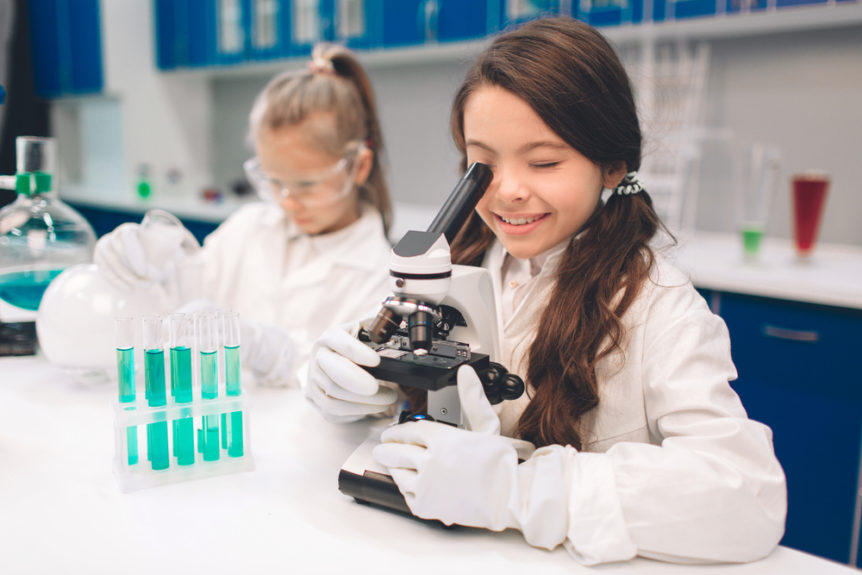By Samir Naqvi – Nov. 12, 2018
For decades, U.S. teachers have puzzled over a common dilemma: how can they provide hands-on biology education without breaking the bank? The exorbitant cost of the specialized equipment and supplies needed to carry out even simple biology experiments leaves many teachers without viable and practical options.
But this may be about to change. Recently, a team of Army-funded researchers from some of the U.S.’s top educational institutions—MIT, Harvard, and Northwestern University—created an educational platform that helps teachers provide synthetic biology instruction to students of all ages. BioBitTM, which costs less than $200 for a classroom of 30, allows for a hands-on demonstration of a wide range of cutting-edge science experiments.
What is a BioBit?
BioBits are freeze-dried pellets made from a variety of safe cellular extracts. When activated, these pellets go through pre-designed reactions—each pellet type is a unique experiment, with different pellets appropriate for different ages, interests, and skill levels.
Although BioBits are becoming increasingly popular among the country’s science teachers and research-minded parents, this innovation actually stems from federally-funded research performed by the Army Research Office (ARO). When beginning the research process, ARO hoped to develop new synthetic biology tools that would allow living cell materials and enzymes to produce non-biological materials like polymers and chemicals.
But when ARO researchers found that they could fit this biological potential into tiny, inexpensive pellets, the marketing opportunities were immediately obvious. Making BioBits available to today’s students can encourage an interest in biology at an early age and, perhaps, even steer students toward a career in military research.
The Future of BioBit-Related Research
This type of synthetic biology technology is already being used in various manufacturing applications, and its future potential is nearly endless.
For centuries, pharmaceutical companies have relied on animal-derived materials (or the animals themselves) to produce vaccines, medications, and other health-related products. But synthetic biology offers scientists the ability to set up processes by which cruelty-free cellular material can create useful compounds on its own. This cellular material may also be able to test the effectiveness of new medications, essentially eliminating any need for animal testing while providing greater reliability.
These technologies may also be able to fuel integrated orthopedic devices. For example, instead of using a metal-and-plastic artificial knee to replace your natural one, doctors may be able to take a small section of your own bone and essentially grow a new knee joint that doesn’t have an expiration date. For those who have had a limb amputated, synthetic biology can produce a prosthesis that responds to nerve movement and otherwise functions as a natural limb.

